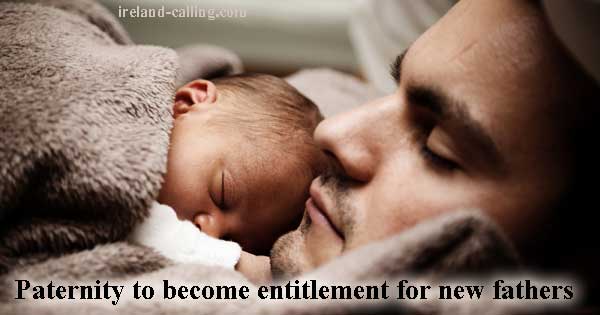New fathers will be entitled to paternity leave as soon as September if proposed measures are approved by the government as expected.
The law will see an initial two weeks paid leave being allowed for new fathers.
Ireland is currently one of the last countries in the EU that have such leave options in place as part of its employment law.
Up until now, new fathers have had to use days from their annual holiday entitlement and even then it was at the discretion of their employer.
The new laws will mean fathers have the right to two weeks leave at any point within 26 weeks of the birth, with payment of €230 per week.
Currently, new mothers are entitled to 26 weeks paid maternity leave with the option of an additional 16 weeks unpaid.
Minister for Justice and Equality Frances Fitzgerald said: “The introduction of paternity leave and paternity benefit will have a positive impact on gender equality. Ireland is one of the few European countries without such leave.
“Evidence shows that fathers want to spend time caring for and being with their children and families. Currently fathers use other existing leave arrangements to take time off around the birth of their child to support their families.”
Minister of State Aodhán Ó Ríordáin added: “The fact that this proposed paternity leave can be taken any time within a 26 week period of the birth of a child allow fathers to spend increased time with their children and families around the child’s birth. Evidence from countries such as Norway shows that paternity leave – aside from its social benefits and positive impact on fatherhood – promotes equality for women and supports higher levels of female participation in the labour force.”
The move will bring Ireland back in line with the majority of countries in Europe in making paternity leave a legal entitlement. There are still a handful of countries that don’t have such laws in place.
The most generous laws in the world are in Japan and South Korea where new fathers can take a year in paid leave to help take care of their family.